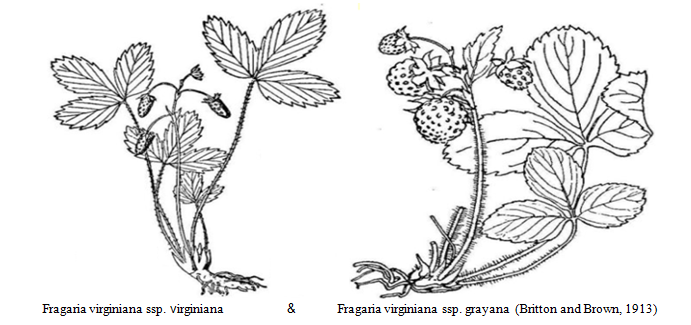Below is an expanded and much improved rewrite of a draft which I had posted last year — improved thanks to the helpful commentary of Davide Piffer, Emil Kirkegaard, Kevin MacDonald, Peter Frost, Meng Hu, and others. As for the work, the intent was to clarify the concept of race, understood from the perspective of natural history, so to render the term which describes it inessential. It is hoped that the piece will also clarify the purpose of this blog, the focus of which is human varieties, of which races as constant varieties and natural divisions are but subtypes.
Fuerst, J. (2015). The Nature of Race: the Genealogy of the Concept and the Biological Construct’s Contemporaneous Utility. Open Behavioral Genetics.
Abstract: Racial constructionists, anti-naturalists, and anti-realists have challenged users of the biological race concept to provide and defend, from the perspective of biology, biological philosophy, and ethics, a biologically informed concept of race. In this paper, an onto-epistemology of biology is developed. What it is, by this, to be “biological real” and “biologically meaningful” and to represent a “biological natural division” is explained. Early 18th century race concepts are discussed in detail and are shown to be both sensible and not greatly dissimilar to modern concepts. A general biological race concept (GBRC) is developed. It is explained what the GBRC does and does not entail and how this concept unifies the plethora of specific ones, past and present. Other race concepts as developed in the philosophical literature are discussed in relation to the GBRC. The sense in which races are both real and natural is explained. Racial essentialism of the relational sort is shown to be coherent. Next, the GBRC is discussed in relation to anthropological discourse. Traditional human racial classifications are defended from common criticisms: historical incoherence, arbitrariness, cluster discordance, etc. Whether or not these traditional human races could qualify as taxa subspecies — or even species — is considered. It is argued that they could qualify as taxa subspecies by liberal readings of conventional standards. Further, it is pointed out that some species concepts potentially allow certain human populations to be designated as species. It is explained why, by conventional population genetic and statistical standards, genetic differences between major human racial groups are at least moderate. Behavioral genetic differences associated with human races are discussed in general and in specific. The matter of race differences in cognitive ability is briefly considered. Finally, the race concept is defended from various criticisms. First, logical and empirical critiques are dissected. These include: biological scientific, sociological, ontological, onto-epistemological, semantic, and teleological arguments. None are found to have any merit. Second, moral-based arguments are investigated in context to a general ethical frame and are counter-critiqued. Racial inequality, racial nepotism, and the “Racial Worldview” are discussed. What is dubbed the Anti-Racial Worldview is rejected on both empirical and moral grounds. Finally, an area of future investigation – the politics of the destruction of the race concept – is pointed to.
Keywords: natural division, race, biology
Contents
Introduction………………………………………..………………………………………………………………………………………..4
I. Biology – A Philosophical Clarification…………………………………………..………………………………..……..5
I-A. Existing Views: Confusions Abound
I-B. Biological Concepts in General
I-C. The Validity of Biological Concepts
I-D. Biological Kinds
I-E. Natural Biological Divisions
I-F. Races as Natural Biological Divisions
I-G. The Intraspecific Natural Division as Type of Biological Variation
I-H. The Natural Division as a Taxonomic Unit
I-I. Natural Divisions and Intraspecific Variation with Regards to the Subspecies Category
I-J. Biologically Meaningful Race Concepts
I-K. Biological Reality
I-L. Biologically Important Differences
I-M. Concepts of Biological Race
II. The General Biological Race Concept………………………………………………………..………………..……..25
II-A. The Genealogy of the Concept
II-B. Semantic Complexities and the Evolution of the Race Concept
II-C. Biological Race
II-D. What the Core Biological Race Concept Does Not represent
II-E. Races, Clines, Clusters?
II-F. Clarification on the Meaning of “Arbitrary” and “Objective” in Context to Natural Divisions
II-G. Regarding Different Definitions of Biological Race: What Races Need Not Be
II-H. Genomic-Genealogical Complications
II-I. Estimated Genomic Similarity: Some Ambiguity
II-J. Race: Mixed and Undifferentiated
II-K. Essential and Cluster classes; Fuzzy and Discrete Sets
II-L. Sociological Clarifications
III. The Ontology of Biological Race……………………………………………….……………………………………..……62
III-A. Other Defenses of Biological Race
III-B. Biological Races and Biological Reality
III-C. Thin Biological Racial Essentialism
IV. The Races of Man……………………………………………………………………………………………………………………81
IV-A. A Very Brief Historical Review
IV-B. Human Biological Races and Scientific Consensus
IV-C. Racial Classifications and Biological Race Concepts
IV-D. Traditional human Races
IV-E. THRs and Biologically Objective Races
IV-F. THRs and Migration, Intermixing, and Ancient Admixture
IV-G. THRs and Cluster Discordance
IV-H. THRs and Taxonomy
IV-I. THRs and Subspecies
IV-J. Are There Human Species?
IV-K. “Significant” Racial Differences
IV-L. Human Biodiversity (HBD) and Society
IV-M. Race and Intelligence
V. Critique of Anti-Biological Race Arguments………………………………….…………………………………….126
V-A. Anti-Biological Arguments
V-B. Biological Scientific Arguments
V-C. Sociological Arguments
V-D. Unnaturalistic Arguments and the Numbers Game
V-E. Onto-epistemology Arguments
V-F. Semantic Arguments
V-G. No-True-Race Arguments
V-H. Teleological Argument: The Future of Race
V.I. Can a Good Argument be Made Against (the) Race (concept)?
VI. A Troublesome Inheritance?…………………………………………………………………………………………………148
VI-A. The Social Destruction of a Biological Reality
VI-B. A Not So New Morality for Race
VI-C. The Moral Critiques: Arguments based on Outcome Differences
VI-D. The Moral Critiques: Arguments based on Racial Classification and Identity
VI-E. The Moral Critiques: Arguments based on Racial Favoritism
VI-F. The Moral Critiques: Arguments based on the “Racial Worldview”
Conclusion…………………………………………………………………………………………………………….……………………169
References…………………………………………………………………………………………………………………………………170

